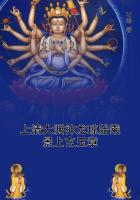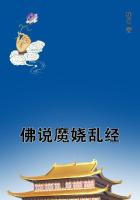His lectures were edited by his colleague, Dr.Cairns, and published in 1834.These published lectures scarcely do justice to him, as they are taken from his manuscripts written in the early years of his college life, and do not contain the oral illustrations and emendations which be was accustomed to pour forth from day to day in his class-room.
At the basis of his whole system, we discover the threefold division of the intellectual faculties by Mylne into sensation, memory, and judgment.Yet his lectures were of a more quickening and comprehensive character than those of his preceptor.We discover, too.that as Dr.Brown's views were given to the world, Professor Young grafted many of the living buds of that ingenious analyst on the old and drier stock.He is obliged like Stewart, and unlike Mylne, -- who used to speak of that "undescribed and undescribable faculty of the mind" denominated common sense, -- to call in fundamental laws of belief, and places among these causation and personal identity."Experience itself does not reveal to reason the relation of cause and effect." "Cause is not that only which in a particular instance precedes a change; but that which, in similar circumstances, we believe must always have been followed by a similar change, and will always be so followed in future: our belief in the relation of cause and effect thus presents us with a universal truth." "The belief is irresistible and is derived from an instinctive principle in our nature." He says "another important idea connected with the fundamental laws of belief is that of personal identity." " If we ask why each of us believes in his own identity, or regards the feelings which he formerly experienced as belonging to the same person which he now calls himself, does not the very statement of the question show its absurdity? Is it not obvious that, even in the casual expressions which we employ, we take the fact for granted by the use of the pronouns, I and he? It is to be referred.therefore, to a primary law of our nature."He dwells fondly on the senses, in the operation of which he took a keen {369} interest.He holds that, in perception, there is involved sensation, memory, and judgment.There are sensations; they are remembered; and then a judgment pronounced that the sensations must have a cause, which cause is body."All our sensations are connected with the conviction of certain external things as their cause; and things which are independent of us, because we cannot command their existence by our volition." "We not only believe that, in the act of perception, we are conscious of knowing two different things, matter and mind, which are at the moment distinct; but we believe that they are permanently distinct and independent." It is not very clear to me how he reaches this result.He seems to refer it, like Reid and Hamilton, to an original belief."The belief is of the same kind and rests on the same grounds with our belief in the permanence of the laws of nature."(Lect.L.) l believe the principle he appeals to, is that of cause and effect.and he hold-- that we are bound by our very constitution to believe that every effect has a cause.
This might entitle him to argue, by this instinctive principle of causation, that our sensations, having no cause within the mind, must have a cause without the mind; if indeed we could in such circumstances rise to the idea of a Without.But lie knows that what a cause is we must learn from experience; and from a sensation, which is unextended, we could never reach the idea of any thing extended.But our idea of body is of something extended; and we never can reach this except by some original perception as is maintained by Reid and Hamilton.He is thus in all the difficulties of the inferential theory, in the illogical process of arguing from something unextended within to an extended existence without.
He argues powerfully that our knowledge of motion is prior to our knowledge of extension, and that, in motion, there is implied time and the observation of the succession of our thoughts.















